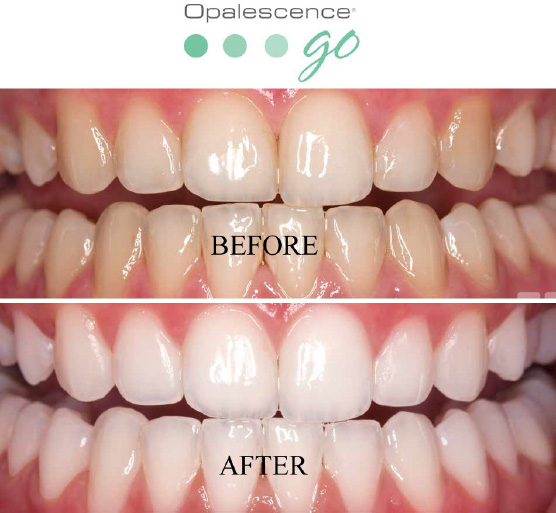In “Understanding Common Dental Problems for Better Oral Health,” you’ll discover essential insights into the most frequent dental issues you may encounter and learn how to effectively prevent them. Tooth decay, gum disease, bad breath, and tooth sensitivity are some of the challenges many face, but with the right practices—like proper brushing, regular dental check-ups, and maintaining a healthy diet—you can significantly improve your oral health. This article offers practical tips and preventive measures that empower you to take charge of your dental well-being, ensuring a brighter smile and healthier mouth for years to come. Have you ever wondered how to keep your smile bright and healthy for years to come? Understanding common dental problems and how to tackle them is essential for maintaining your oral health. There’s so much information out there, and it can feel overwhelming at times. However, when you break it down, it becomes much easier to grasp. Let’s dive into some of the most common dental issues you might face and explore how you can prevent them!
Tooth Decay: The Sneaky Culprit
Tooth decay is one of the most common dental problems around the world. It occurs when plaque, a sticky film of bacteria, builds up on your teeth. The bacteria in plaque produce acids that can erode the enamel, leading to cavities. Don’t worry; there are straightforward ways to avoid tooth decay.
Prevention Tips for Tooth Decay
Here are a few tips to help you fend off tooth decay:
- Brush Twice Daily: Make sure you’re brushing your teeth at least twice a day using fluoride toothpaste. This helps to strengthen your enamel and remove food particles.
- Floss Daily: Flossing isn’t just about removing food scraps; it helps to eliminate plaque buildup between your teeth where your toothbrush can’t reach.
- Limit Sugar Intake: Reducing sugary snacks and drinks is crucial. Sugar feeds the bacteria in your mouth, leading to more acid and increased risk of decay.
- Regular Dental Check-ups: Regular visits to your dentist can catch decay early on. Your dentist can clean areas that are hard to reach and provide necessary treatments before cavities develop.
Gum Disease: More Common Than You Think
Gum disease, also known as periodontal disease, is another widespread issue. It begins with gingivitis, characterized by swollen and bleeding gums. If left untreated, it can progress to periodontitis, which could lead to tooth loss.
Signs and Symptoms of Gum Disease
You might notice a few warning signs indicating you could have gum disease:
- Swollen or Red Gums: If your gums look puffy or have a reddish tint, it might be time to pay more attention to your oral hygiene.
- Bleeding During Brushing: If you see blood on your toothbrush, don’t ignore it. It’s a significant indicator of gingivitis.
- Persistent Bad Breath: This can be a signal that bacteria is building up in your mouth.
How to Prevent Gum Disease
Taking care of your gums is just as crucial as caring for your teeth. Here’s what you can do to keep your gums healthy:
- Brush and Floss Regularly: As with tooth decay, good oral hygiene is your first line of defense against gum disease.
- Avoid Tobacco Products: Smoking or using other tobacco products can seriously affect your oral health, making gum disease more likely.
- Healthy Diet: A balanced diet rich in vitamins C and D can help maintain your gum health.
- Regular Dental Visits: Like tooth decay, seeing your dentist regularly is essential for checking your gum health and catching issues early.

This image is property of pixabay.com.
Bad Breath: It Happens to the Best of Us
Everyone experiences bad breath from time to time, but if it becomes persistent, it’s essential to understand what’s causing it. Often, bad breath stems from bacteria in the mouth.
Common Causes of Bad Breath
Here are some common culprits behind unpleasant breath:
- Poor Oral Hygiene: Not brushing or flossing adequately can allow food particles to remain, leading to odor.
- Dry Mouth: Saliva helps wash away food particles and bacteria. If you’re not producing enough saliva, your breath can become stale.
- Certain Foods: Foods like garlic and onions can linger in your mouth much longer than you might like.
Tips for Combatting Bad Breath
Here are some friendly suggestions to help you beat bad breath:
- Stay Hydrated: Drinking plenty of water helps keep your mouth moist and washes away food particles.
- Brush Your Tongue: The surface of your tongue can harbor bacteria, contributing to bad breath. Make sure to brush your tongue as part of your dental routine.
- Use Mouthwash: A good mouthwash can help reduce bacteria and freshen your breath. Just be sure to choose one without alcohol, as it can dry out your mouth.
- Avoid Smoking: Apart from causing bad breath, smoking can lead to more severe dental problems.
Tooth Sensitivity: Ouch!
Tooth sensitivity can be a real pain—literally! You might experience discomfort when consuming hot, cold, or even sweet foods. Understanding what’s causing your sensitivity is crucial for finding relief.
What Causes Tooth Sensitivity?
There are several reasons you might experience tooth sensitivity:
- Worn Enamel: Your enamel is the protective layer on your teeth. Over time, it can wear down, exposing the nerve endings inside.
- Gum Recession: If your gums recede, the roots of your teeth can be exposed, leading to sensitivity.
- Cracked Teeth: A crack in your tooth can expose the nerve endings to temperatures and pressure.
How to Relieve Tooth Sensitivity
If you’re dealing with tooth sensitivity, try these remedies:
- Specialized Toothpaste: There are many toothpaste options designed for sensitive teeth. Look for ones that contain potassium nitrate.
- Avoid Acidic Foods: Foods high in acid, like citrus fruits, can aggravate sensitivity. Try to consume them in moderation.
- Use a Soft-Bristled Toothbrush: Hard bristles can cause gum recession and wear down enamel. A softer option is kinder to your gums and teeth.
- Talk to Your Dentist: If sensitivity persists, your dentist can help you identify the cause, whether it’s a cavity or something more serious.

This image is property of pixabay.com.
Cavities: Fill Them Up!
Cavities occur when tooth decay goes untreated. They’re essentially holes in your teeth caused by the acid produced by bacteria. While they can be a cause for concern, knowing how to prevent and address them can ease your mind.
How to Identify Cavities
You might not always spot a cavity yourself, but here are some signs to look for:
- Toothache: If you’re experiencing pain, it might be due to a cavity.
- Visible Holes or Pits: Sometimes, you can see the damage on your tooth.
- Sensitivity to Hot or Cold: If your tooth hurts when you eat hot or cold foods, it could be a sign of decay.
What to Do if You Have a Cavity
- See Your Dentist: The only way to handle a cavity is to get it filled. Your dentist will clean out the decay and fill the hole with a material, like amalgam or composite.
- Practice Good Oral Hygiene: Once treated, keep up with brushing and flossing to prevent more cavities from forming.
- Consider Sealants: Dental sealants can be applied to your molars to provide an extra layer of protection against decay.
Oral Cancer: A Serious Concern
While it may not be one of the more common dental problems you think about, oral cancer is an essential issue to be aware of. It may affect your gums, tongue, or other areas in your mouth.
Risk Factors for Oral Cancer
Understanding risk factors can help you stay vigilant. Here are some of the common ones:
- Smoking and Tobacco Use: These are the primary contributors to oral cancer.
- Excessive Alcohol Consumption: Heavy drinking can increase your risk significantly.
- HPV Infection: Certain strains of the human papillomavirus (HPV) are linked to oral cancer.
How to Stay Safe
Here are some precautionary measures you can take:
- Regular Check-Ups: Your dentist can perform oral cancer screenings during routine visits.
- Avoid Risky Behaviors: The more you reduce exposure to known risk factors, the better.
- Monitor Changes: If you notice unusual lumps or sores that don’t heal within two weeks, be sure to see your dentist.

This image is property of pixabay.com.
The Importance of Regular Dental Visits
You might be wondering why regular visits to the dentist are so crucial. Building a strong relationship with your dentist not only helps you catch problems early but also gives you a plan tailored to your specific needs.
What to Expect During a Dental Visit
Understanding what happens during your appointments can ease some anxiety:
- Examination: Your dentist will check for dental problems, including cavities, gum disease, and more.
- Cleaning: A dental hygienist will clean your teeth, removing plaque and tartar buildup.
- X-Rays: These may be taken to reveal issues not visible during the exam, like cavities between your teeth or problems with your jaw.
Create a Dental Care Routine
Creating a solid dental care routine can keep you on the right track. Here’s a friendly checklist:
- Brush Twice Daily
- Floss Daily
- Use Mouthwash Regularly
- Visit Your Dentist Every Six Months
Regular maintenance can make a significant difference in the long run.
Conclusion: Your Dental Health Matters
As you can see, understanding common dental problems is crucial for better oral health. By taking proactive steps, you can prevent issues like tooth decay, gum disease, bad breath, and more. Remember, maintaining a solid dental care routine and visiting your dentist regularly can make all the difference in ensuring a bright, healthy smile! You’ve got this!
In addition to personal care, staying informed and making educated choices will empower you to take control of your oral health. Don’t hesitate to ask your dentist any questions during your appointments—they’re there to help you! Now that you’re armed with information, go ahead and make those positive changes. Here’s to your dental health!



